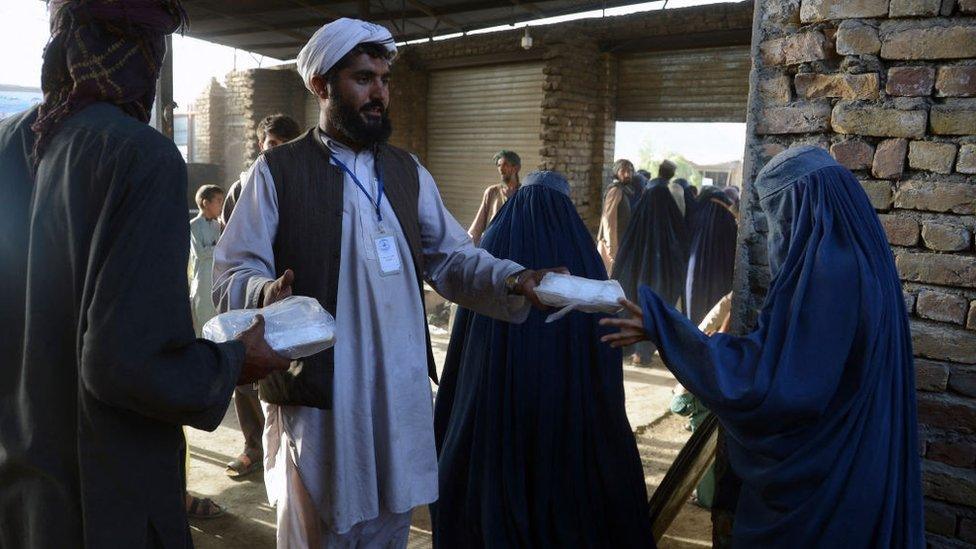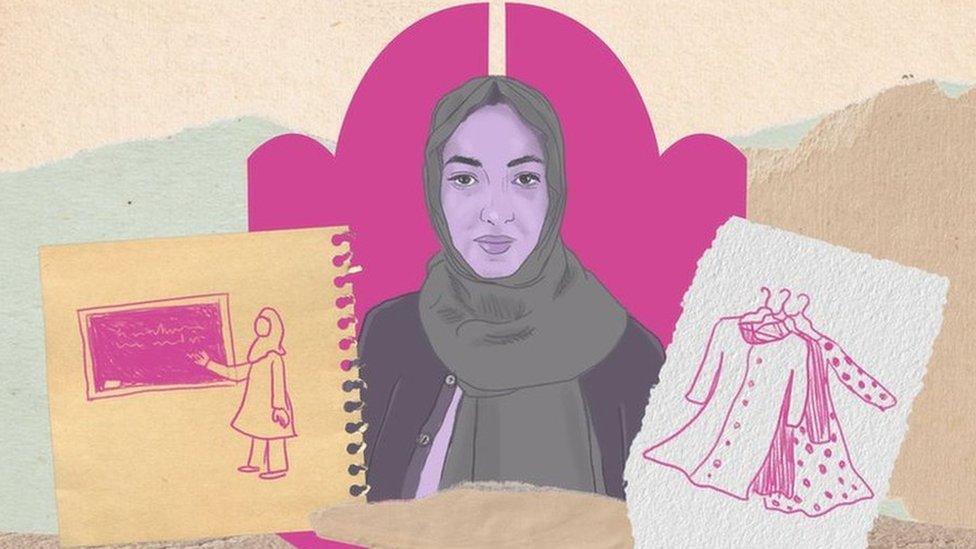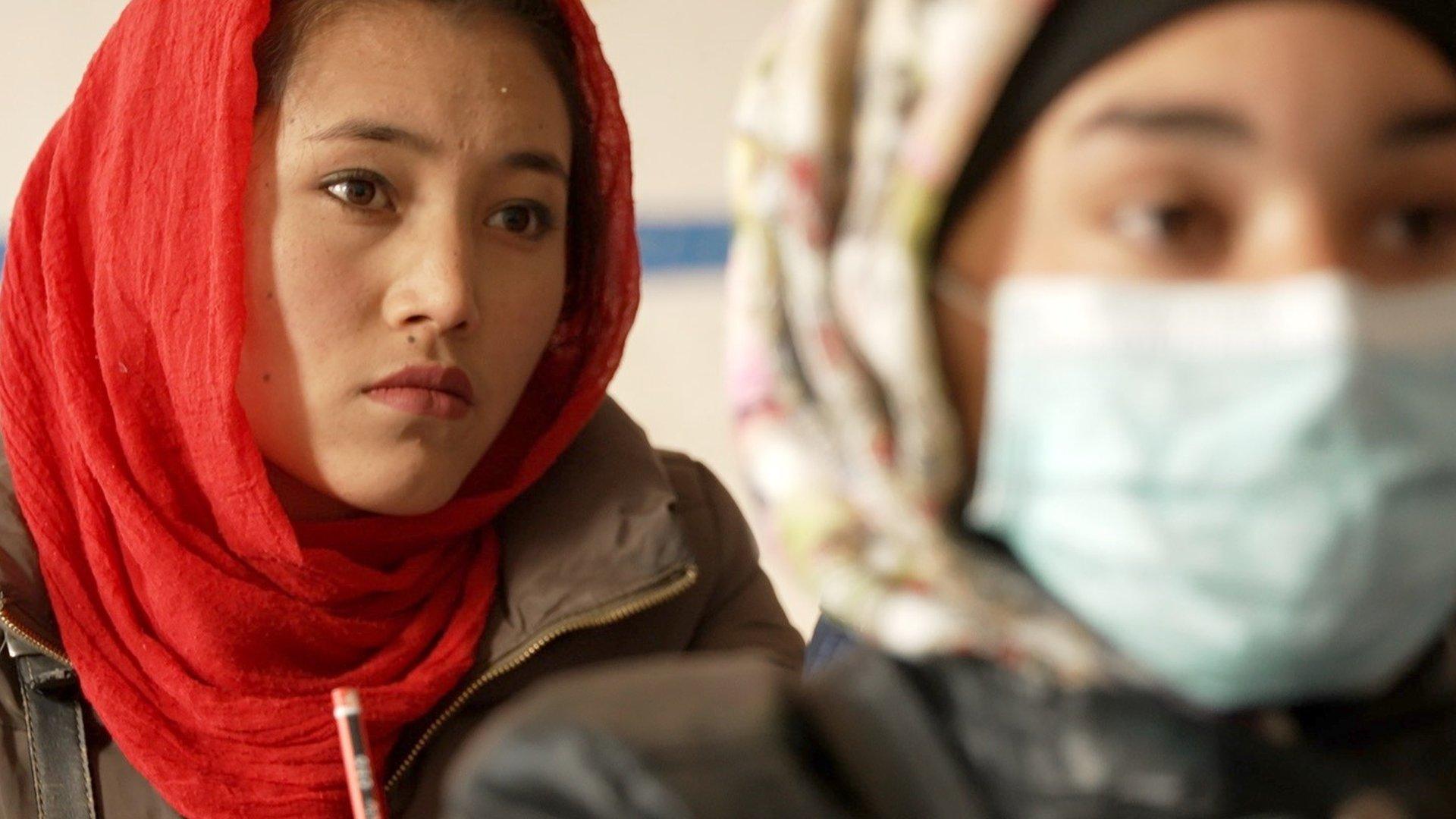Taliban to force Afghan women to wear face veil
- Published

Women in burkas receiving food aid in Kandahar last month
Afghan women will have to wear the Islamic face veil for the first time in decades under a decree passed by the country's ruling Taliban militants.
Any woman who refuses to comply and ignores official warnings to male members of her family could see a male guardian jailed for three days.
The Taliban enforced the all-encompassing burka during their first stint in power in the 1990s.
But they had not enforced it in Afghan cities since taking over last year.
Many women in Afghanistan already wear the burka but some, particularly in urban areas, just wear a simple covering over their hair.
The decree was passed by the Taliban's Ministry for the Prevention of Vice and Promotion of Virtue.
Taliban officials described the decree as "advice" but laid out a specific set of escalating steps for anyone not complying:
In the first instance their home would be visited and their husband, brother or father would be talked to
In the second, their male guardian would be summoned to the ministry
In the third, the male guardian would be taken to court and could be jailed for three days
The Quran, Islam's holy book, tells Muslims - men and women - to dress modestly. Male modesty has been interpreted to be covering the area from the navel to the knee. For women it is generally seen as covering everything except their face, hands and feet when in the presence of men they are not related or married to.
However, there has been much debate within Islam as to whether this goes far enough. This has led to a distinction between the hijab (literally "covering up" in Arabic) and the niqab (meaning "full veil").
The hijab is typically a scarf that covers the hair and neck, whereas the niqab is a veil for the face that leaves the area around the eyes clear. It is worn with an accompanying headscarf or an abaya, a full-length robe, and sometimes with a separate transparent eye veil.
The burka covers the entire face and body, leaving just a mesh screen to see through.
Many of the strict rules imposed by the Taliban on daily life are targeted at women.
Afghanistan has become the only country in the world which publicly limits education by gender - a major sticking point in the Taliban's attempts to gain international legitimacy.
Girls have been banned from receiving secondary education, the ministry for women's affairs has been disbanded, and in many cases women have not been allowed to work.


Watch: Former Afghan child refugee - now a top lawyer
- Published7 December 2021

- Published19 November 2021
